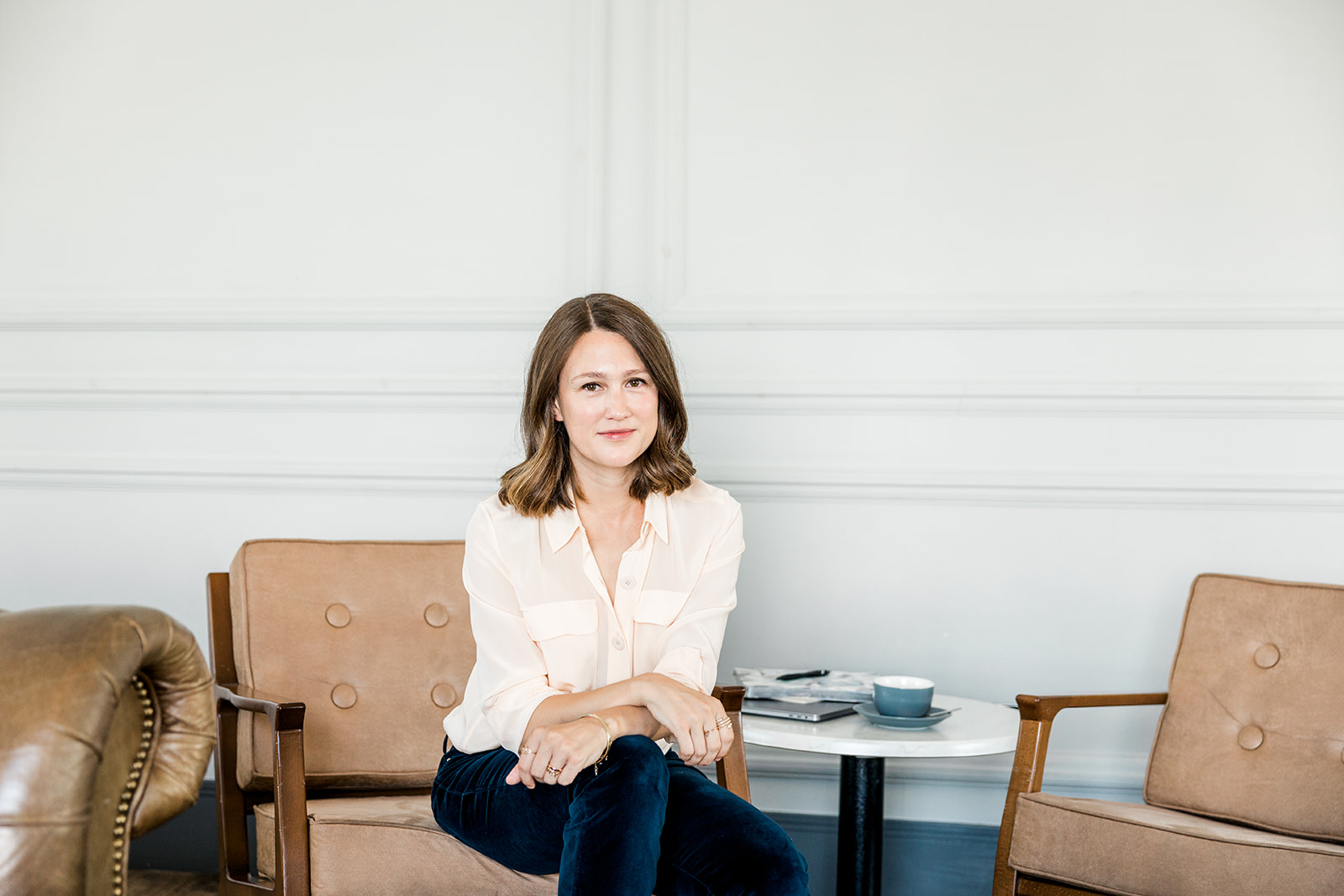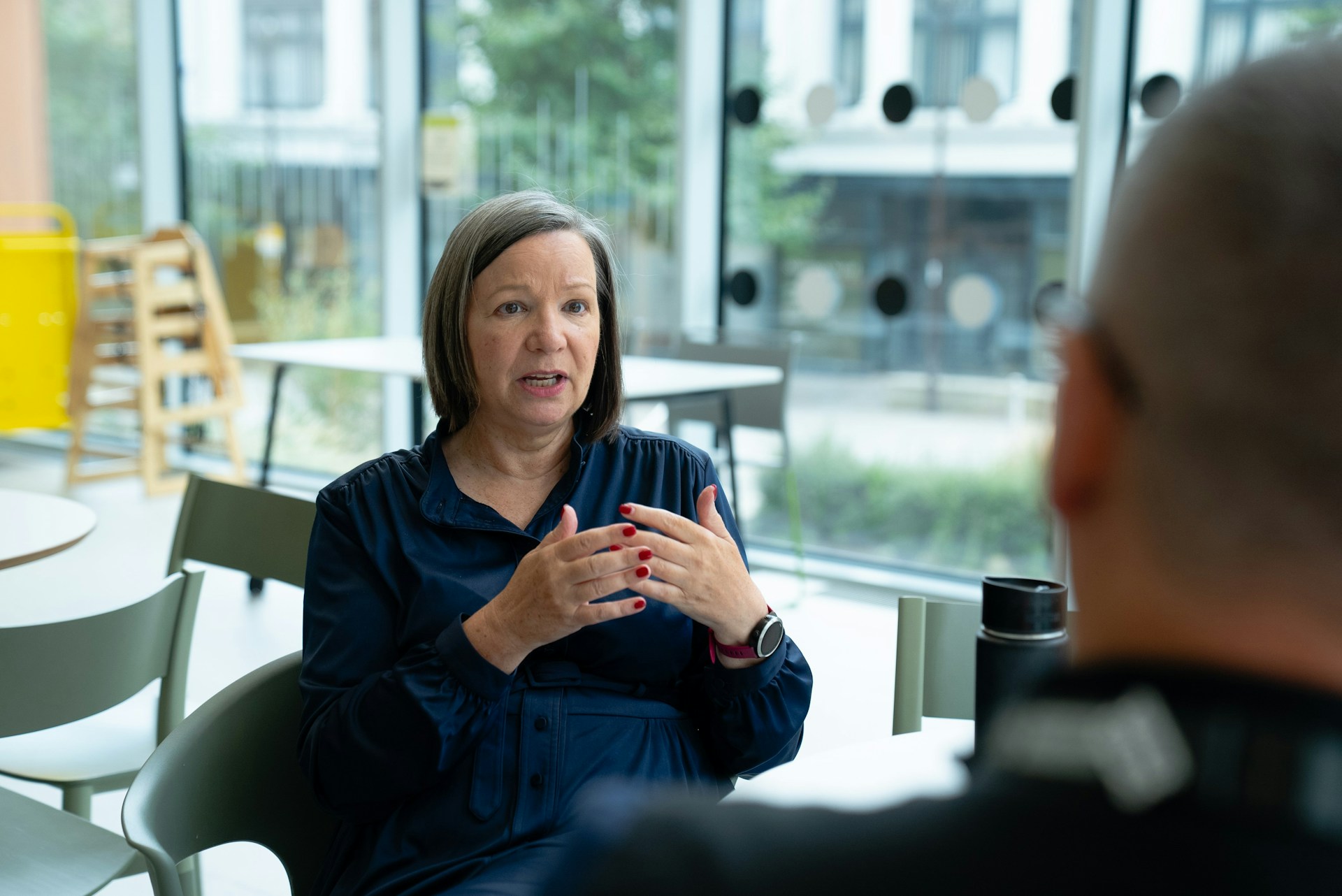Laura Roeder: Building a Multimillion Dollar Company Without VC

When most people imagine building a tech company, they picture pitch decks, investor meetings, and late-night emails to VCs. The path to startup success seems paved with funding rounds and venture capital handshakes. But Laura Roeder had a different idea.
She didn’t want to “scale fast and burn cash.” She wanted freedom. She wanted simplicity. And she wanted to build something that mattered — without giving up control.
And she did. Laura Roeder is the founder of MeetEdgar, a social media scheduling tool that grew to millions in revenue without ever raising a dime of venture capital. In a startup era where blitz-scaling is often glorified, Roeder’s journey offers a refreshing — and powerful — alternative: bootstrapping with purpose.
This is the story of how she did it.
The Freelance Designer Who Questioned the Hustle
Before she became a tech founder, Laura Roeder was a freelance web designer in her early 20s, building WordPress websites for small businesses. She was good at it, and business was steady. But there was one problem: it didn’t scale.
Roeder realized that her income would always be tied to her hours. If she stopped working, the money stopped too.
“I didn’t want to have to trade time for money for the rest of my life,” she once said in an interview with Forbes.
She began writing about social media and marketing — teaching small businesses how to promote themselves online. Her email list grew. Her content started reaching thousands. And soon, she pivoted from service work to info products: online courses and trainings.
It was her first taste of leverage. And it worked.
Roeder’s digital training business crossed six figures quickly. But deep down, she knew she wanted more — not just another online course, but a product business that could scale on its own.
From Teacher to Tech Founder
By 2014, social media was evolving fast. Businesses were flocking to platforms like Facebook and Twitter, but scheduling and repurposing content was still painfully manual.
Roeder had built a system for herself: she recycled posts, categorized updates, and used spreadsheets to map out evergreen content. The idea was simple — if content is still relevant, why not repost it? There was no tool on the market doing this effectively.
So she built one. Laura partnered with developers and launched MeetEdgar, a SaaS (Software as a Service) product that allowed users to schedule, categorize, and automatically recycle their social media posts.
From day one, MeetEdgar was profitable. No funding rounds. No 100-hour weeks chasing investors. Just a useful product, priced clearly, built for a niche audience that Roeder already understood.
Within a year, the company had hit $1 million in annual recurring revenue (ARR).
The Power of a Small, Profitable Team
One of the most impressive parts of Roeder’s journey wasn’t just the revenue — it was the way she ran the company.
MeetEdgar had a fully remote team before it was cool. They had no physical office. No extravagant perks. Just strong communication, trust, and autonomy.
At its peak, the team was fewer than 30 people — yet generating millions.
Instead of growth at all costs, Roeder focused on profitable, sustainable expansion. The product stayed lean, the roadmap stayed focused, and customer support was a core priority. Her approach flipped Silicon Valley logic on its head.
Instead of “move fast and break things,” her motto was closer to “grow slow, serve well, and stay in control.”
Why She Said No to Venture Capital
Plenty of investors came knocking. After all, MeetEdgar was a growing SaaS tool with healthy margins and a loyal customer base.
But Roeder kept saying no.
Why?
Because the business was doing just fine on its own. Taking VC money would mean shifting the focus from sustainability to scale — from solving real problems to chasing massive returns.
“I started MeetEdgar because I wanted to build a business that supports my life, not the other way around,” she said in an interview with Mixergy. “I didn’t want to give up control to someone who didn’t care about my vision.”
Her decision was intentional. She wasn’t building a unicorn. She was building a company that paid well, grew predictably, and let her enjoy life on her terms.
Redefining Startup Success
Roeder’s story challenges the dominant startup narrative in all the right ways.
In a world where raising capital is often equated with success, she shows that true success can look like:
- Profitable from day one
- A small, remote team that thrives
- No board, no burn rate, no pressure to 10x overnight
- Serving a niche audience really, really well
MeetEdgar never tried to be everything to everyone. It carved out a space in the crowded world of social media tools and stayed there — profitably.
Roeder has often spoken about the emotional freedom that comes with bootstrapping: fewer stakeholders to please, less noise, and more space to make human-centered decisions.
Lessons for Founders in 2025 and Beyond
For today’s founders, Roeder’s blueprint is more relevant than ever.
1. You Don’t Need Millions to Start
Laura Roeder proved that software success isn’t reserved for those with millions in the bank. MeetEdgar was built on a lean budget, launched without a team of engineers, and grew without the runway of investor cash. What mattered more was solving a clear pain point for a niche audience—small business owners and solo creators drowning in content chaos. Founders often think capital validates their idea, but Laura’s journey flips that logic: product-market fit comes first, money comes later (if ever).
2. Validate Your Product Before You Scale
Before investing in complex features, Laura launched with a simple MVP: just enough automation to recycle social posts. The goal wasn’t perfection—it was traction. She listened to her customers, watched what they used most, and prioritized features that truly mattered. This deliberate, feedback-driven approach allowed MeetEdgar to scale sustainably, rather than sinking resources into bells and whistles no one asked for.
3. Know Your Customer Better Than Your Competitor
Laura’s edge came from years of working directly with small business owners, freelancers, and solopreneurs. She didn’t have to guess what her audience wanted—she was her audience not long before. This deep empathy allowed her to create marketing that resonated and a product that served practical needs. In a world of generic features, her tailored understanding created a moat no VC-backed rival could replicate.
4. Build a Culture of Clarity and Calm
While Silicon Valley glorified hustle, Laura quietly built a company that valued calm productivity and asynchronous work. Her team was remote from day one, focused on outcomes rather than hours. She often spoke about the value of clear communication, simple processes, and avoiding the chaos that plagues hyper-growth startups. In doing so, she cultivated a team that was efficient, loyal, and low-stress—traits rarely found in the startup echo chamber.
5. Focus on Profitability Early
Rather than chasing user growth at all costs, Laura kept a close eye on unit economics and margins. From the beginning, MeetEdgar was designed to be profitable, not just “grow fast.” Every decision, from pricing to hiring, was made with sustainability in mind. That financial discipline gave her the freedom to weather market changes, invest in her team, and eventually sell the company without external pressure.
6. Avoid Vanity Metrics—Track What Matters
Laura didn’t obsess over follower counts or top-line user growth. Instead, she focused on core metrics like churn, lifetime value, and customer happiness. It’s easy for founders to get distracted by social media applause or inflated valuation numbers. But MeetEdgar’s success came from tracking what truly mattered for long-term health, not what looked good on TechCrunch.
7. Own Your Time, Your Business, and Your Decisions
Above all, Laura valued ownership—not just of equity, but of time and choices. Without VC demands, she could step away from the business when needed (including for maternity leave), run lean without approval, and eventually sell on her own terms. “I wanted to build a business that supported my life,” she said in multiple interviews. That principle guided her through every season—from startup launch to full acquisition—and it’s a model more founders would do well to follow.
Conclusion
Laura Roeder didn’t set out to defy norms, she built a business that aligned with her values. She launched from her laptop, focused on solving a real problem, and scaled without VC capital. Along the way, she mastered profitability, autonomy, and purposeful culture.
Ultimately, she sold MeetEdgar for seven figures. But the real victory lies in the freedom it bought her - time, choice, balance. That’s the power of founder-first, bootstrapped success.
Laura’s story isn’t a footnote, it’s a playbook. If you want growth without caps, legacy without loss, and life as well as work, take note. You don’t need VC to matter. You just need vision, values, and execution.

square.jpg)










